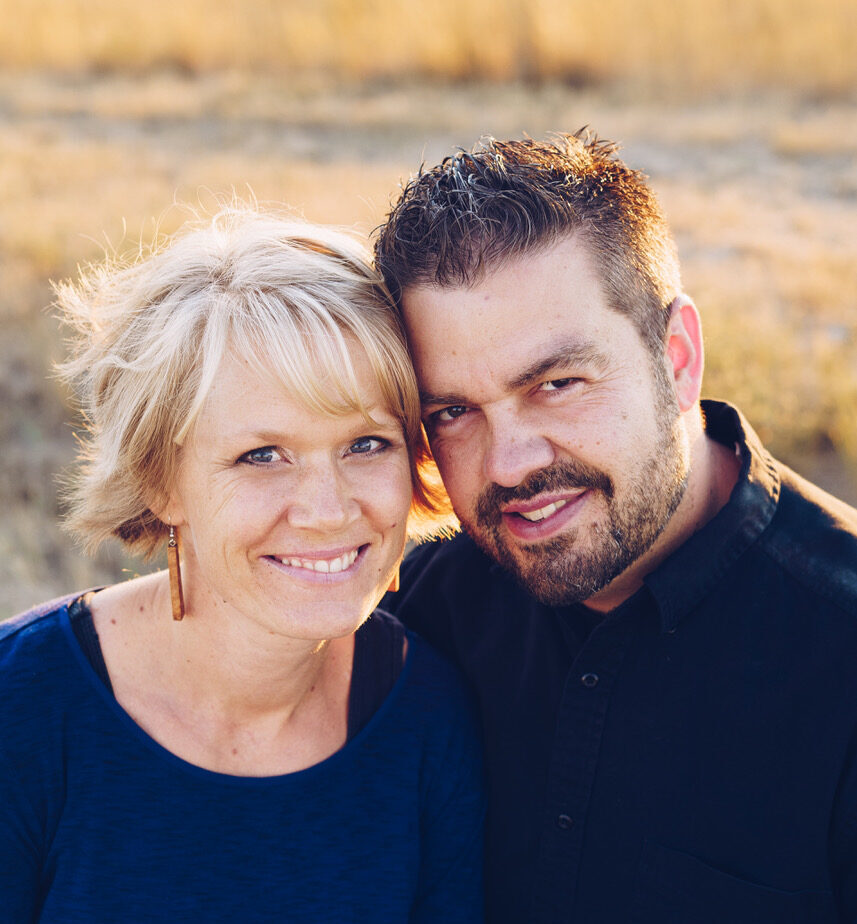To Judge or not to Judge…
 By Jesse Jost
By Jesse Jost
Our culture’s favourite verse, which is applied very selectively, is “do not judge.” (Matt 7:1) A verse that is not so quoted is where Jesus sheds more light on the topic by warning us “not to judge according to appearance, but judge with righteous judgement.” (John 7:24)
In a world full of evil and danger, wisdom forces us to try to discern between the harmless and the harmful, between the hazardous and the healthy, and between the true and the false. So at one level, making judgments is unavoidable. But our need to judge others seems to go far beyond our need to survive. We love to size up other humans; we make snap-judgments and stereotype. We are quick to make assumptions that aren’t warranted, and declare a verdict based on insufficient evidence.
Judging an issue or another person is serious business. Our judgments have consequences: they dictate our attitudes and our course of actions. When we judge, we are deciding reward or punishment. We reward with trust, time spent with a person, words of affirmation or praise, money spent on a product, etc. We punish by avoidance, emotional withdrawal, silence, criticism, boycotting, slander, or worse.
Clearly, getting our judgments right has huge implications for our self and others. To punish the innocent or reward the evil is a serious offence to God and results in the decay of society.
Incorrect judgments cause much misery and relationship breakdown. I’m sure you don’t have to look too far into your own past to see hurt brought about by an unjust judgement. Our capacity to judge is a loaded weapon with explosive power. Sadly, we swagger around firing the bullets of judgment with reckless abandon, caring little about the serious damage we are inflicting on others.
Some will advocate for judgment pacifism, a mutual disarmament on all judging. I don’t believe that is the answer. Dangers need to be recognized, frauds need to be exposed, evil needs to be unmasked. These are vicious cancers that prey upon the weak. When evil lurks, the vulnerable suffer the worst. Love that stands by and does nothing to speak up or protect is not love, but sentimental cowardice.
Sin is always destructive, which why our loving God abhors it. To not judge sex slavery as evil is to contribute to the ongoing torture millions of girls are experiencing every day. The fear of the Lord is to hate evil. The more we grow in our relationship with God, the more we will passionately love the world He has made and those who bear His holy image. Greater love will result in greater passion to bring freedom and healing to those who are enslaved in sin’s corrosive clutches. This requires making a right judgment.
But while fighting for truth, goodness, and beauty requires judging, we must be ever wary of the devastation a hasty and incorrect judgment inflicts. I would like to suggest a quick safety course on the correct handling of judgment.
Be always aware of how little you know.
It is hard for us to admit we don’t know something, or that things are different than they appear. It is even harder to admit that we made an error in judgment. We have giant blind spots in our knowledge due to our selective perception and memory software that glibly rewrites the past to fit our ever-changing mood. To top it all off, we are prone to self-deception that gives us the benefit of the doubt while casting a suspicious eye at everyone else. Jesus described our condition as having a giant plank in our eye but feeling confident enough in our sight to remove a speck of dust in our brother’s eye.
When we evaluate others, we observe and we make interpretations, failing to discern what is based on fact and what is a figment of our imagination. We desperately need the Holy Spirit to humble us and remind us what a limited perspective we have. We need to show grace by suspending judgment in the areas where we do not have firm knowledge. When it comes to other humans, we need to remember that we don’t know their genetic predisposition toward certain tendencies, we don’t know how the influences of parental abuse or support have shaped them, and we don’t know all the social and cultural influences that led to different decisions. We are not victims, but we make our choices from different starting points with varying degrees of desires and emotional forces shaped by a myriad of mysterious factors. God’s judgment is all-knowing and will take all of this into consideration. We can barely understand ourselves and why we do what we do, let alone a stranger. Repeat after me: “I don’t know.” Say it again. Let that truth change you until you make a habit of questioning your assumptions and seeking more evidence before rendering a verdict. “Be quick to hear, slow to speak and slow to wrath” (James 1:19)
Acknowledge that the depravity of man includes your own heart.
When we see or hear about an immoral action of another and it is making us angry, we need to humbly admit that the propensity to commit that very act is planted deep within our own sin nature. It is often just the grace of God that desire and opportunity did not intersect and cause you to commit a similar sin. This does not absolve the sinner of responsibility or the consequences he needs to face, but it does remind us that we all need a Savior.
All of us have a past with thoughts, words, or actions that are morally repulsive. A man once said that if “If you saw my every thought and immoral desire and vain imagination, you would not respect me as an upright man, but would judge me a monster.” I am so grateful for the restraining grace of God in my life that has provided a way of escape in the midst of temptation, and prevented me from having the means to fulfill what my wicked heart wanted in the moment. When we realize just how much we need mercy, we will be so much quicker to grant mercy to those around us, especially when we hear the sobering words of James: “Judgment is without mercy to those who have shown no mercy.” (James 2:13)
Christian love requires believing the best and being quick to forgive.
How much we are hurt or offended by someone else’s actions often depends on the motive that we attribute to that action. A simple example of this occurs often when a friend does not respond to a message. Did the friend simply forget, get too busy, lose internet, or is there something sinister afoot? Is he doing this to annoy us, or is he over-sensitive and hurt by something we said? We have no way of knowing, but that will rarely stop us from making something up.
The truth is that almost any action can interpreted as being motivated by something evil or motivated by something kind but perhaps misguided. When we hear of the actions of those we love best, say a spouse or favourite sibling, we will be quick to defend their actions or put the best possible spin on it. But if we have been hurt by someone and grow bitter, almost every action will be viewed with suspicion or condemnation. First Corinthians 13:7 says that love “hopes all things, and believes all things.” In other words, we must try to give people the benefit of the doubt by looking for positive reasons behind their actions. And when there is genuine malice behind an action against us, we are called to forgive as we have been forgiven. Forgiveness means that we will no longer desire or seek retribution on that person for how we have been hurt. This is only possible when our eyes are on the cross and not the offence.
Repent of sinful attitudes that distort our vision.
Our emotions have a powerful influence on our minds. In fact, our conclusions are more determined by how we feel than by logical consideration. One psychologist likened our emotions to the president and our intellect to the press secretary. Our emotions dictate many of our opinions and decisions and then tell the intellect to come up with whatever logical explanation it wants to defend it. The stronger the emotion, the greater it will influence our ability to perceive clearly. Anger, pride, envy, jealousy, and sadness will all color how we interpret the facts and affect our judgment. We need to be transformed by the renewing of our minds and bathe our emotions in the truth of who God is, what He has done, and what He will do.
Recognize that ultimate judgement is coming.
Before we pull the trigger of judgment we must remember that Judgment Day is coming. Every one of us will stand before the righteous Judge and give an account of all our actions, words, and judgements. God knows every detail and motive; nothing has escaped His notice. Awareness of this Day should make us exceedingly careful in our judgments. We will have to answer for the wounds we caused by our gossip and slander, for the hasty evaluations that crushed dreams and ambitions, for the careless warnings that broke fellowship and unity.
While Judgment Day should give us pause, it should also be a source of great hope. It is not our job to right every wrong against us or clear our name. Like Jesus, we can walk in peace as we commit ourselves to Him who judges righteously. His opinion and evaluation is the only one that matters.
Related:
Brain Tricks: Simple Ways to Exploit Your Human
